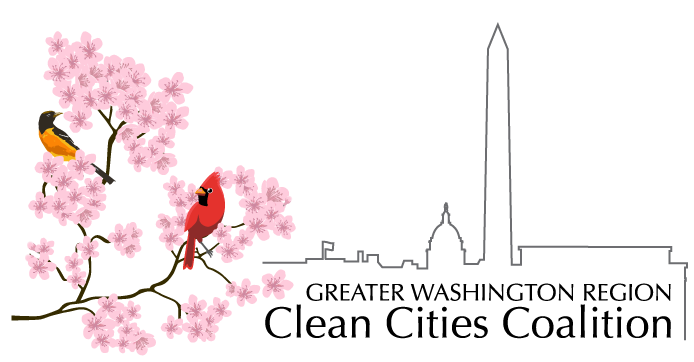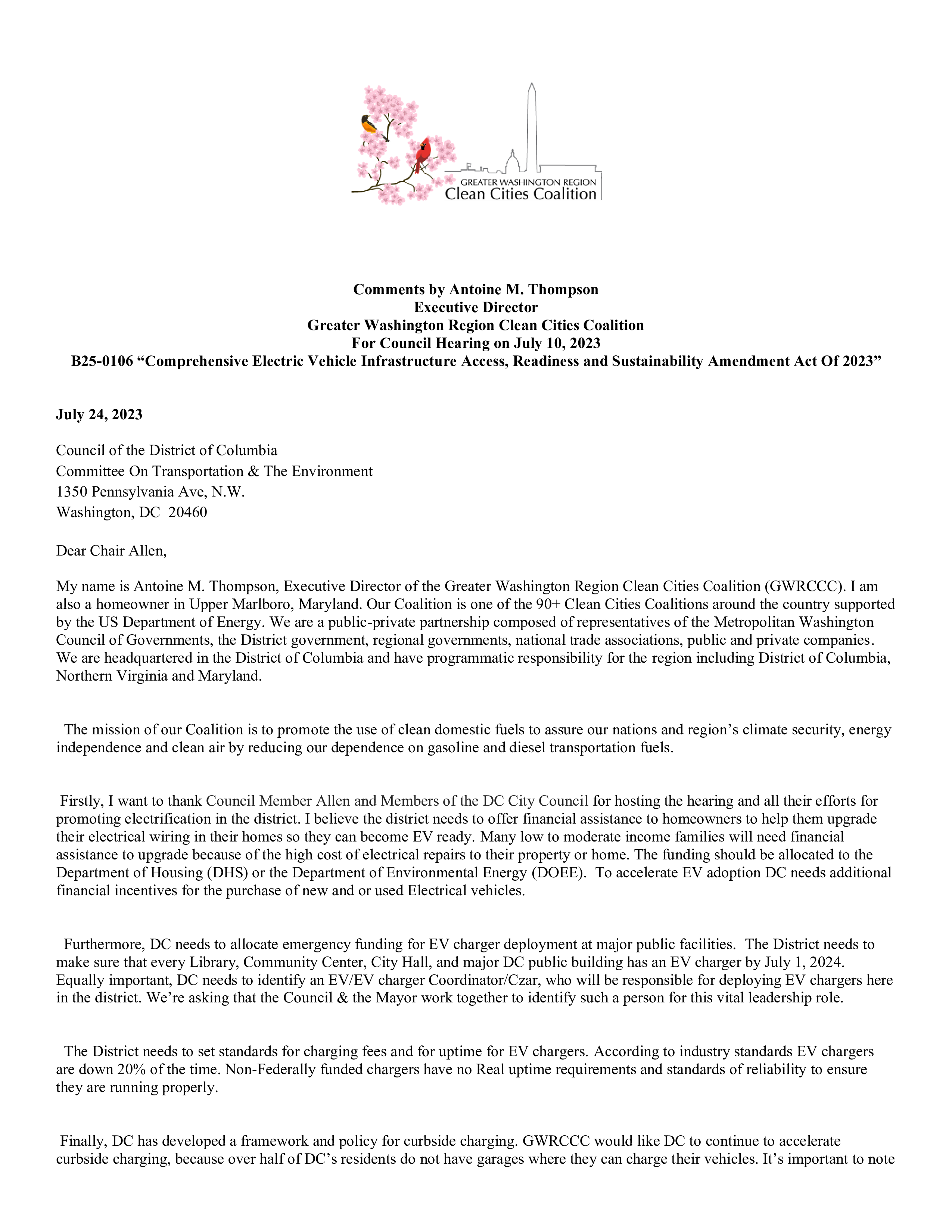Our Core Values
Policy Plans
Racial Equity Federal Agenda 2022
” These recommendations will help provide a real framework, for real solutions to help make real change to Forster equity that expands opportunities for underserved communiteies and populations in energy, environment, transportation and public health. This is and important moment in history, we cannot become spectators or just consumers while these significant investments are being made in clean energy, transportation and the environment” – State Antoine M. Thompson, Executive Directory of the Greater Washington Region Clean Cities Coalition
“There’s an urgency now to engage and elevate opportunities for vulnerable and frontline communities who have borne the brunt of transportation emissions due to historical and systematic injustices. This may be our only chance to leverage this transformational funding to accelerate multimodal EV adoption and workforce and economic development opportunities while also improving public health.” – Dr. Shelley Francis, Co-Founder of EVNOIRE
2022 Federal Priorities for Advancing Racial Equity in Energy, Environment & Transportation
Eight Key Points
1. Funding for targeted EV Education / Community Outreach & Marketing to Increase EV Adoption in BIPOC/Underrepresented Communities who are often impacted first and worst from transportation emissions.
2. Funding to increase Diverse Businesses in the E-Mobility Sector with research funding to explore the opportunities across sectors and the supply chain.
3. Targeted funding for technical assistance and grants for the support of E-Mobility Workforce & Economic Inclusion / E-Mobility HBCU / HSI Fellowship Programs.
4. Funding for Research, Data Collection, Monitoring & Evaluation of Multimodal Electrification (e.g. understanding the Public Health Impacts / Solutions specific to underrepresented and frontline communities)
5. Convening of E-Mobility Equity Policy Forums / Listening Sessions / Followed by Report (Outlining Action Items).
6. Request meeting/s with this group at a regular cadence with White House to foster an ongoing communications loop and ensure that initiatives are progressing – Potential working group
7. Connect with White House for a multimodal EV event during National Drive Electric Week in September 2022. EVHybridNoire is one of the four international organizers of this annual event.
8. Create provisions for diverse vendors, contractors, consultants and e-mobility businesses to make it easier to do business and receive federal / state certifications, contracts, and other business opportunities. Prompt payment, pre-bid meetings, and set-aside projects are a just a few suggestions to enhance opportunities for diverse businesses.
Discussion Members and Stock Holders
(Jill Hamilton ,Shelley Francis , Terry Travis, Kimberly Harden, Joshua Aviv, Paul Francis, Evette Ellis, Korey Neal, Sheryl E. Ponds , Luis MAcDonald, R. Denise Everson)
2022 Electric Vehicles For All Bill Proposal
Supporters:
Matt Petersen
President & CEO
Los Angeles Cleantech Incubator
Andrea Marpillero-Colomina Clean Transportation Advocate GreenLatinos
Katherine Garcia
Clean Transportation for All Campaign Director Sierra Club
Elizabeth Gore
Senior Vice President, Political Affairs Environmental Defense Fund
Leslie Aguayo
Climate Equity Program Manager The Greenlining Institute
Mac McKinney
Senior Advisor, Federal Government Affairs Edison International
Isaac Vanderburg CEO
Launch Alaska
Peter O’Connor Policy Director Plug In America
Chuck Feinberg
Executive Director
New Jersey Clean Cities Coalition
Alberto Ayala
Executive Director and Air Pollution Control Officer Sacramento Metropolitan Air Quality Management District
Wayne Nastri
Executive Officer
South Coast Air Quality Management District
Mary Leslie
President
Los Angeles Business Council
Heidi Sickler Director of Policy AMPLY Power
Jonathan Parfrey Executive Director Climate Resolve
Raj Dhillon
Senior Manager, Advocacy & Public Policy Breathe Southern California
Marc Carrel
President & CEO
The Emphysema Foundation of America
Paul Koretz
City Council Member City of Los Angeles
Jason Anderson President & CEO Cleantech San Diego
Travis Madsen
Transportation Program Director Southwest Energy Efficiency Project
Sven Thesen Founder
Project Green Home
Katherine Stainken
Sr. Director, EV Policy Electrification Coalition
Patrick Guild
Chief Operating Officer
Breathe California Sacramento Region
Kate Meis Wright
Executive Director
Local Government Commission
Ellie Cohen
CEO
The Climate Center
Aric Ohana
CEO
Envoy Technologies
Charles Griffith
Climate and Energy Program Director Ecology Center (Michigan)
Tom Knox
Executive Director
Valley CAN (Clean Air Now)
Active Discussions
Comments by Antoine M. Thompson
Executive Director
Greater Washington Region Clean Cities Coalition
For Council Hearing on July 10, 2023
B25-0106 “Comprehensive Electric Vehicle Infrastructure Access, Readiness and Sustainability Amendment Act Of 2023”
Executive Director
For Council Hearing on July 10, 2023
GWRCCC Message of Support for Lower Food and Costs Act (H.R. 7060).
Electric Vehicle Panel At NY State Diverse Legislators Conference
April 8th 2022
Greater Washington Region Clean Cities Coalition in conjunction with EVHybridNoire , Lime and NYSERDA spoke as a diverse collection of representatives.


























